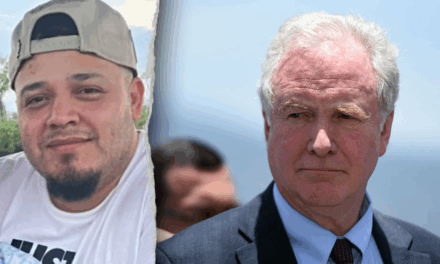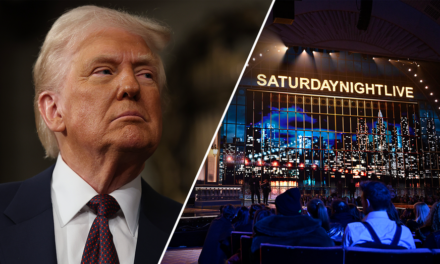The lead-up to the anticipated debate between President Joe Biden and his opponents was marked by a troubling inflection point in the relationship between the media and political narratives. As the debate neared, various media outlets appeared to have embraced the Biden White House’s rhetoric surrounding ‘cheap fakes’—a term that has quickly gained traction in the political lexicon. This narrative, which effectively argues that the use of misleading images and videos proliferates disinformation, has created a fertile ground for the media’s credibility crisis.
In recent years, “fake news” has often been invoked in political discourse to delegitimize dissenting voices or critical coverage, but the Biden administration’s strategic framing of its adversaries as peddlers of ‘cheap fakes’ raises significant concerns about journalistic integrity. By standing firmly on this narrative, the media risks becoming an echo chamber for government rhetoric and undermines its own role as an independent watchdog.
The debate itself was framed in a context laden with tension, partly fueled by the administration’s insistence on framing the opposition as disseminators of falsehoods. This discourse reached a boiling point as commentators and journalists began adopting the terminology evoked by the White House. By doing so, they inadvertently aligned themselves with the political agenda rather than maintaining a neutral stance that promotes objective analysis and reporting.
The phenomenon of ‘cheap fakes’—digital content that is altered or manipulated but not entirely fabricated—has come to the forefront as a pressing issue, particularly with the rise of social media platforms. This evolution has propelled discussions around digital literacy, misinformation, and the responsibilities of both tech companies and media organizations. While it is indeed crucial to inform the public about these dangers, the media is faced with a daunting challenge: How to report on such topics without being co-opted by the political narrative that seeks to control the conversation.
The ‘cheap fakes’ framing has served to simplify a complicated issue, reducing it to a binary argument: those who care about the truth versus those who spread lies. Such oversimplification is dangerous. It inadvertently discourages thoughtful discourse and may hinder the media’s ability to critically assess and hold those in power accountable. It is essential for journalists to navigate these murky waters with caution, ensuring that they maintain their own credibility without becoming pawns in a larger game of political chess.
Moreover, the coverage leading up to the debate did not merely address the dangers posed by misinformation; it also reflected broader patterns in the media’s treatment of political issues. By heavily mainstreaming the narrative cultivated by the Biden White House, outlets risk perpetuating a cycle of misinformation that they aim to combat. Instead of providing counter-narratives or critical analyses, many reports leaned heavily into the administration’s claims without thorough investigation or context.
This trend raises crucial questions about editorial standards and practices in an age where information—and misinformation—propagates at breakneck speed. As the debate unfolded, various media organizations were caught in a web of their own making. They had lent credibility to a narrative that, while highlighting genuine concerns regarding disinformation, ultimately obfuscated the nuances necessary for informed public discourse.
In the aftermath of the debate, the fallout of the media’s alignment with this narrative is expected to be far-reaching. Skepticism towards traditional media channels has already been on the rise, fueled further by a partisan media landscape. As citizens become more discerning in their media consumption, they are likely to question the objectivity of journalists who showed a predisposed acceptance of the Biden narrative. This skepticism can erode trust, undermining the media’s pivotal role in a democratic society.
In the face of this credibility crisis, media outlets must reckon with their relationship to power and the narratives that shape political discussion. It is essential for them to return to foundational principles of journalism—accuracy, balance, and comprehensive reporting. The embrace of simplified narratives may offer an immediate story, but it risks abandoning the complexities that underpin our contemporary political climate.
Moving forward, media organizations must recalibrate their approaches, resisting pressures to conform to politically expedient narratives and instead prioritizing thorough investigative journalism that can verify claims and provide a platform for diverse viewpoints. Only by adhering to these principles can the media hope to restore its standing as a credible source of information in an increasingly divided landscape.
The dynamics surrounding the ‘cheap fakes’ rhetoric serve as a case study in journalistic challenges within the current political framework. The American public deserves a media landscape that serves as a bulwark against misinformation rather than one that adds layers of disinformation itself. In this digital age, where verification is often sacrificed for sensationalism, maintaining journalistic standards is more critical than ever.
As journalists navigate these turbulent waters, they must critically evaluate their role against the backdrop of political narratives. The stakes are high, and the potential consequences of unfounded claims or biased coverage can have lasting impacts on public perception, political engagement, and ultimately the health of democracy itself. It is incumbent upon the media to rise to the occasion, embracing a steadfast commitment to truth, fairness, and accountability—qualities that form the bedrock of its credibility.
The journey to restore faith in journalism in light of such crises is undoubtedly complex and multifaceted. Ethical journalism will require ongoing reflection and a recommitment to unbiased reporting, lest it becomes engulfed in the tides of partisan politics and the narratives crafted by those in power. It is a challenging road ahead, but for the sake of public trust and the integrity of democracy, it is one that must be taken.
































